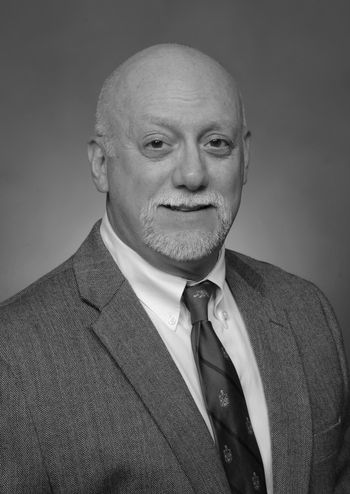OP-ED: These college textbooks treat Islam more favorably than Christianity
Many academics are secularists and more than a few are outright Marxists. These faculty members distrust Christianity due to histories of European colonialization, particularly in the Middle East and North Africa.
Dr. Timothy Furnish is a writer, analyst, and author of five books, with over 13 years college teaching experience. He has taught at Georgia Perimeter College, Reinhardt University, Kennesaw State University, and Norwich University. Outside academia, he has lectured at Joint Special Operations University, Defense Institute for Security Assistance Management, the Federal Law Enforcement Training Center, and several other intelligence and military venues. He also worked for five years as a consultant to US Special Operations Command. Furnish obtained his doctorate in Islamic/Middle Eastern history from The Ohio State University, after serving as an Arabic interrogator in the 101st Airborne Division.
------------------------------------------------------------------------------------------
I have taught topics dealing with religion in general, and Islam in particular, for two decades, including introductory world history surveys, as well as upper-division ones on the history of terrorism and the modern Middle East.
Most college majors require at least one semester of world history; some mandate two. However, there is often a double standard in the way Christianity and Islam are treated in textbooks for such courses.
Nearly all treat Islam with outright favoritism compared to Christianity. This favoritism is due to institutionalized secular and anti-Christian biases in higher education.
Many academics are secularists and more than a few are outright Marxists. These faculty members distrust, if not actively dislike, Christianity more than any other religion due to histories of European colonialization, particularly in the Middle East and North Africa. Finally, the academic left, which is obsessed with diversity and race, wrongly assume that all Muslims are darker-skinned victims of White imperialism.
Below are a few examples.
In Valerie Hansen’s and Kenneth R. Curtis’ Voyages in World History. Volume I: to 1600 (third edition), In this text Christian origins are cast into doubt, with the authors stating that “almost every surviving record about early Christianity written before 100 C.E, whether about the life of Jesus of the early ministry, is written by a Christian believer.” The text also says that “the gospels relate” information about Jesus.
But the book shows no such skepticism about Islam’s origins. There is no caveat about the fact that all extant sources on Muhammad’s life are Muslim. Furthermore, the faith claims of Islam are presented as historical fact. “While in his forties and already a wealth merchant, Muhammad had a series of visions…”. Not “the Qur’an relates.”
[RELATED: Student candidate denied position after opening speech with Bible verse]
Another much-used textbook is Albert M. Craig, et al.’s , The Heritage of World Civilizations. Volume One: to 1700. In the seventh edition, we read of “Jesus of Nazareth,” about whom the Gospel “authors believe that Jesus was the Son of God” and “that he was resurrected on the third day after his death.”
Contrast that with Muhammad “the Prophet” (why not, to be symmetrical, “Muhammad of Mecca”?) to whom “on repeated occasions revelations came…through a figure that was gradually identified as God’s messenger angel, Gabriel.”
The textbook I currently use is William J. Duiker and Jackson J. Spielvogel, World History. Volume I: to 1800. This one is less tendentious – biased – in some ways than the others. But the ninth edition favors Islam in its historical descriptions, especially regarding the Crusades.
Alexius I, Emperor of the beleaguered Byzantine Empire, asked for help in 1095 from Western Christians, complaining that Muslims were razing Christian shrines in the Holy Land. Duiker & Spielvogel reject that assertion: “[I]n actuality, the Muslims had never threatened shrines or cut off Christian access to them.”
This interpretation is refuted by the fact that, in 1009, the Fatimid Caliph of Egypt, al-Hakim, sent an army that razed the Church of the Holy Sepulchre in Jerusalem. Either the textbook’s authors are poor historians, or they’re tendentious. I doubt it’s the former.
[RELATED: WATCH: How students can maintain their faith in God at college]
Overall, the textbooks' approach to the Crusades is to portray them as unbridled, unprovoked aggression against Muslims. Not as what they actually were: a belated Western response to four centuries of Islamic attacks into Christian territories all along the southern tier of the Mediterranean.
These examples may seem like carping, but they are in fact problematic. Scholars should engage critically with both Christianity and Islam or engage critically with neither. But don’t pick favorites.
The academy’s favoritism toward Islam over Christianity is now a key plank of the left in America. President Biden even campaigned on it. One needn’t be a modern “Crusader” to find that unfortunate.
Islam can be practiced and studied in America without favoring it at the expense of Christian belief. We can even discuss this politely—but only if folks are educated honestly on the topic.
------------------------------------------------------------------------------------------
Editorials and op-eds reflect the opinion of the authors and not necessarily that of Campus Reform or the Leadership Institute.

